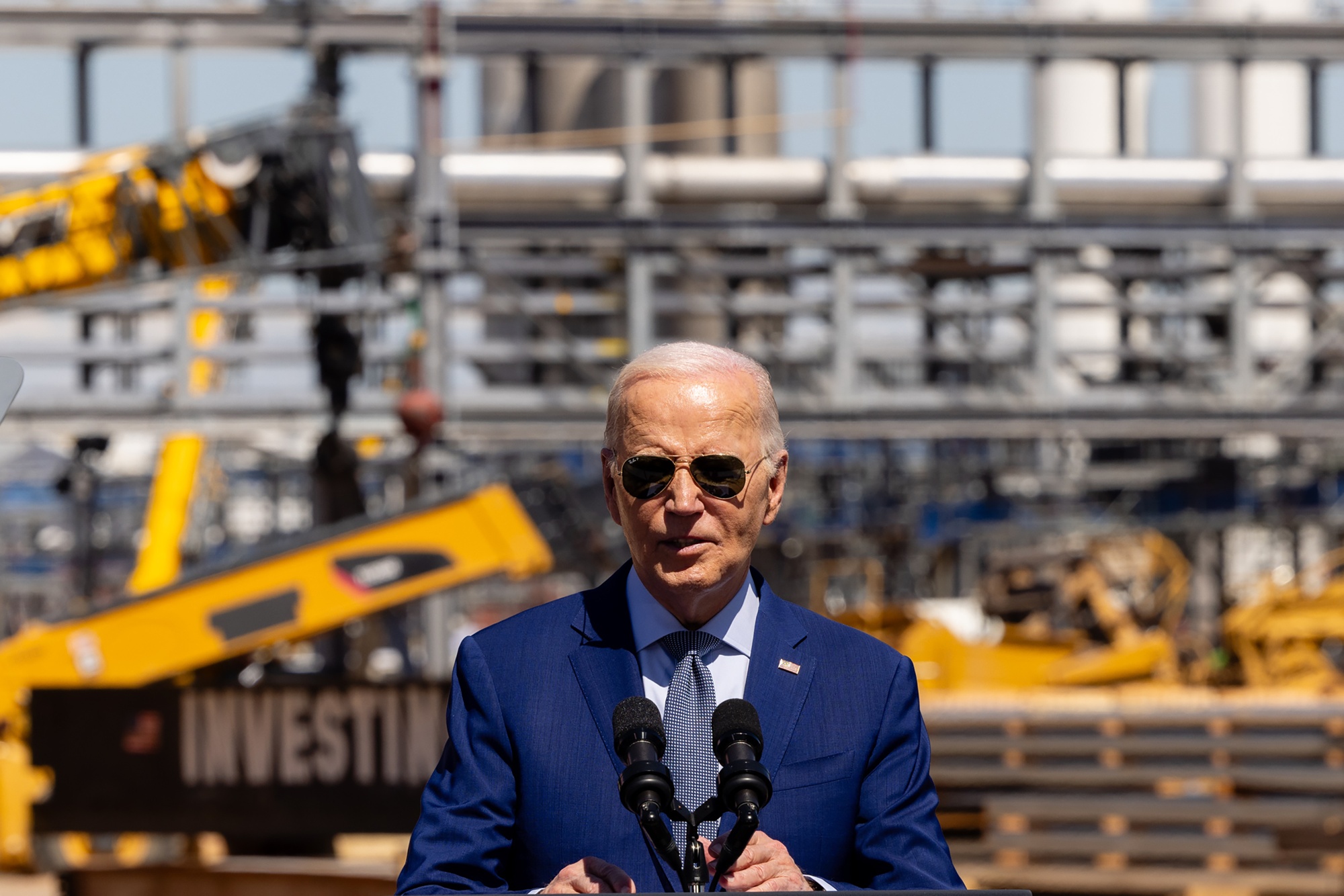
On Wednesday, President Biden unveiled an $8.5 billion agreement with tech giant Intel in Arizona. The funding is part of the CHIPS Act and will create 30,000 manufacturing and construction jobs. Jared Bernstein, White House economic adviser, joins "America Decides" to discuss.
The CHIPS Act funding aims to increase US semiconductor manufacturing and R&D capabilities, especially in leading-edge semiconductors. The proposed funding would help advance Intel’s expansion projects at its sites in Arizona, New Mexico, Ohio and Oregon.
“Today is a defining moment for the U.S. and Intel as we work to power the next great chapter of American semiconductor innovation,” says Intel CEO Pat Gelsinger, in a press release. “AI is supercharging the digital revolution and everything digital needs semiconductors. CHIPS Act support will help to ensure that Intel and the U.S. stay at the forefront of the AI era as we build a resilient and sustainable semiconductor supply chain to power our nation's future.”
Together, the CHIPS Act proposed funding and Intel’s previously announced plans to invest more than USD 100 billion in the U.S. over five years constitute one of the largest public-private investments ever made in the US semiconductor industry. With support from the CHIPS Act funding, Intel’s planned investments are expected to create more than 10,000 new permanent jobs at the company.
Under the preliminary memorandum of terms (PMT) signed with the U.S. Department of Commerce, Intel also has the option to draw upon federal loans of up to USD 11 billion. Intel also plans to claim tax credits, which are expected to be up to 25% of qualified investments of more than USD 100 billion over five years.
▼▼▼
Astera Labs seeks to raise around $713 mln in IPO at $5.5 bln valuation
Infinera Corporation Announces Notification of Delinquency with Nasdaq
TSMC considering advanced chip packaging capacity in Japan, sources say
+86 191 9627 2716
+86 181 7379 0595
8:30 a.m. to 5:30 p.m., Monday to Friday
